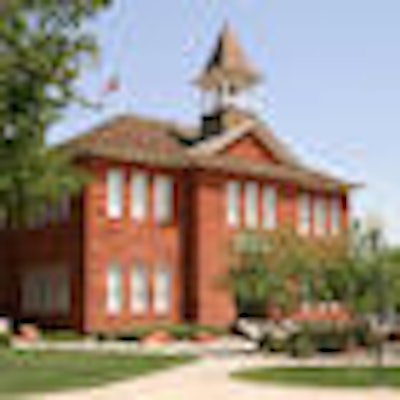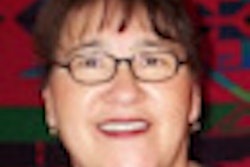
An audit conducted last summer by the state of Nebraska found that faculty dentists at the University of Nebraska Medical Center College of Dentistry were overpaid more than $100,000 for clinical services they delivered at the school's dental clinic between July 1, 2008, and June 30, 2011.
But the school, which is already working to rectify the situation, says the issue stems from issues with a new software system and an accountant who has already been replaced.
Because it is a state-funded school, the University of Nebraska undergoes a state audit of its finances annually. But an audit of a specific component of the university is unusual for the Auditor of Public Accounts (APA), which typically only performs the overall university audit.
The special audit came after the APA became aware that Joan Henke, a certified public accountant (CPA) hired by University Dental Associates (UDA), a private 501(c)(3) component of the university that handles the financial aspect of the school's dental clinic, had failed her annual peer review while working in Nevada prior to taking the position in Nebraska.
"That was what brought the state auditor in to find out if the audits were being done well or if there was an impact on them," Randy Haack, chief financial officer for UDA, told DrBicuspid.com.
UDA hired Henke following a recommendation from its previous CPA, who shared a suite with Henke before retiring, he added.
"We knew after one year with this person that we wanted to go in a different direction, and we've retained a new CPA for UDA who is a teacher and has taught classes for the state auditor's office," Haack said.
Accounting software issues
In addition to concerns about Hencke, UDA had issues with a new accounting software package installed on January 1, 2009, that impacted the distribution of fees to UDA dentists for the work they performed in the school's clinic, according to the APA.
“They knew of the problem and only partially fixed it.”
— Mike Foley, Nebraska state auditor
The UDA includes more than two dozen general dentists and dental specialists who are full-time faculty and provide comprehensive, high-quality dental care directly to patients at the College of Dentistry. Because UDA members are also full-time instructors at the dental college, the UDA fees they receive for providing clinical services are supplementary to their regular salaries as university employees. The clinical service fees received by UDA members are paid and processed through the university's payroll system.
"Our analysis revealed that significant adjustments were made to the distribution of fees collected for UDA member services," Don Dunlap, CPA, assistant deputy auditor, wrote in an October 17, 2011, letter to the university Board of Regents and UDA. "These adjustments were needed due to problems associated with the new Eaglesoft financial management software package implemented by the UDA on January 1, 2009."
The APA found a number of adjustments that had been made that changed the pay among doctors, according to Haack.
"We had instituted a new software system, and we missed some things while learning how to make those adjustments in terms of total dollars," he said.
The total error projection of $57,000 could impact several areas if uncorrected, the audit report noted. Practitioners could be overcompensated, the UDA's fund balance could be understated, and an overstatement of the College of Dentistry's Development Fund, which receives 5% of UDA's collections after distributions, could occur.
"Either somebody didn't know how to use the software, or there was a bug in it," Mike Foley, state auditor for Nebraska, told DrBicuspid.com. "It was an error. It wasn't anything fraudulent."
'Internal control weaknesses'
UDA says it has corrected most of the errors, but the APA audit found additional issues that still need to be addressed.
"They knew of the problem and only partially fixed it -- they fixed about $45,000 of it and just let the rest go," Foley said. "We said, 'No, there's a bigger problem here, you have to fix the whole thing.' So now they're going back and making adjustments to all the dentists who were involved in that."
UDA is rechecking every adjustment that has been made for every patient and corresponding doctor since the inception of Eaglesoft and expects to complete the process in January, according to Haack.
The APA also noted certain internal control weaknesses in UDA's financial management.
"A good internal control plan requires a proper segregation of duties to ensure that no one person is able both to perpetrate and/or to conceal errors and/or irregularities, including possible fraud and abuse," Dunlap wrote in his October 17 letter.
"Any time we audit a small entity, it's very typical for us to put a cautionary finding stating that they need to have several people looking at transactions and not giving too much authority to one person because it creates risk," Foley said. But hiring redundant employees for the sake of having more pairs of eyes on the accounting can be burdensome, he acknowledged.
UDA is reorganizing its staff to improve checks and balances, Haack said.
Foley noted that no patient overcharges were observed in the course of the audit.
"The University of Nebraska has a great reputation, and I think there are some fine people there who had the best of intentions, but errors do happen," he said.



















